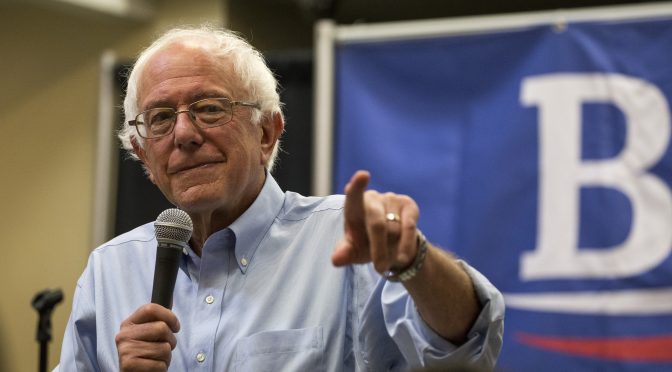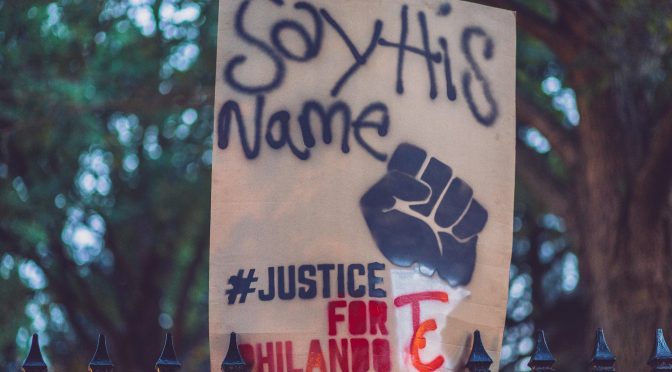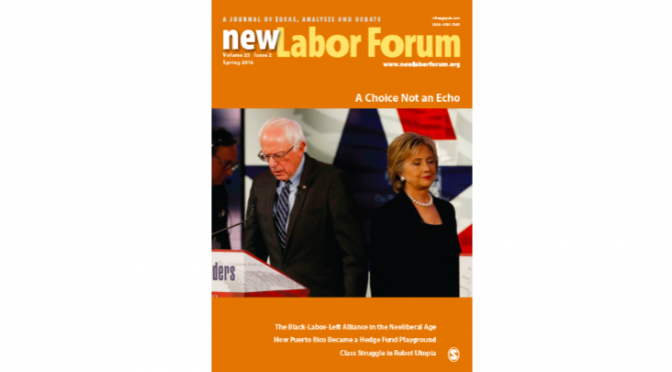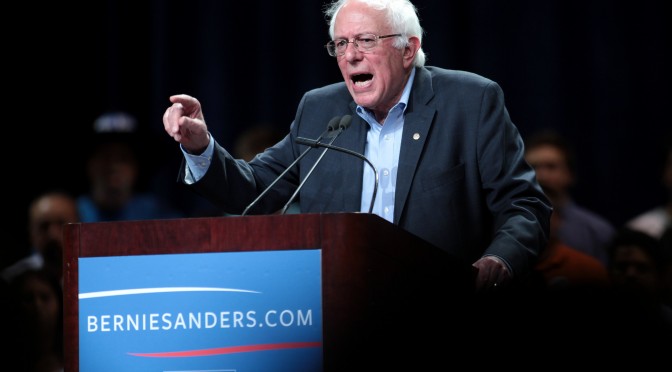The New Labor Forum has launched a bi-weekly newsletter on current topics in labor, curated by the some of the most insightful scholars and activists in the labor world today. Check out some highlights from the latest edition below.
The Trump campaign promise to repeal and replace Obamacare has gone down in flames, preserving the ACA for the time being. That legislation, which remains at risk of being hollowed out, was from the outset mired by its fealty to a complex market-driven system. A prescient article by New Labor Forum Editorial Board member Marie Gottschalk, written upon the passage of the ACA, argued that the Obama administration and leading Democrats had squandered an opportunity for more thorough reform that would prove “perilous for the cause of universal health care and for their political futures.” She indicates that organized labor was partly responsible for the failure to even approximate a single payer system.
Seemingly in response, Bernie Sanders is about to introduce a Medicare-for-all bill in the Senate, which overlaps with Rep. John Conyers’ HR 676 bill in the House. Together, they represent the renewed fight for single payer healthcare. Democracy Now covered that story, and we’re including it here.
Meanwhile, there’s a lot to be learned about the health care wars, which are far from over. Charles Lenchner collects some of the conservative voices sympathetic to single payer health care, even if they’re at odds with the Sanders and Conyers initiatives. And finally, Jacobin’s Branko Marcetic describes what may be the real obstacle: Democrats fighting against single payer.
Table of Contents
- Sick on Arrival: Healthcare Reform in the Age of Obama / Marie Gottschalk
- Medicare for All? Sen. Bernie Sanders Poised to Push for Single Payer after GOP Plan Falls Apart / Democracy Now
- A Synopsis of ‘Conservatives for Single Payer’ / Charles Lenchner
- Democrats Against Single Payer / Branko Marcetic / Jacobin







